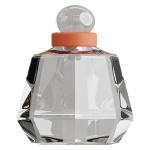
People who are psychologically dependent on substances or behaviors often have difficulty stopping, even when they want to. In some cases, they may even continue using despite negative consequences like job loss, financial problems, and strained relationships. Addiction is an identifiable mental disorder that centers around substance use despite potential negative consequences and outcomes. It is made up of mental and physical aspects that are often very difficult to separate and can be a very complex condition. We treat both men and women, age 18 and older, who meet the admission criteria and want to begin the process of recovery from drugs and alcohol. Her fields of interest include Asian languages and literature, Japanese translation, cooking, natural sciences, sex positivity, and mental health.

Long-Term Behavioral Effects of Alcohol
The bidirectional relationship between stress and alcohol dependence is explored, highlighting the impact of chronic stress on neurobiological systems implicated in addiction. Recognizing and addressing environmental stressors are essential components of a comprehensive approach to preventing and treating alcohol dependence, encompassing both individual and societal levels. This section delves into the multifaceted nature of alcohol dependence, elucidating its significance within the broader context of mental health and well-being. The exploration of this definition lays the foundation for a comprehensive understanding of the subsequent discussions on its historical, societal, and global dimensions.

Reinforcing the Message of Hope, Resilience, and the Possibility of a Life Free from Addiction
For some folks dealing with both physical and psychological dependence, the psychological side of things sometimes resolves on its own once the physical aspect is treated. Knowing the difference between psychological dependence and addiction can be a valuable tool in recovery. Substance dependencies — both physical and psychological — frequently lead to addiction. When it comes to addiction, psychological and physical dependence are two terms that are often used interchangeably.
- In this dependence, users rely on drugs to manage their emotions, ultimately leading to compulsive drug use.
- Surmounting alcohol addiction differs greatly depending on aspects such as the severity of the addiction, the individual’s health, and their commitment to treatment.
- Both are intertwined, making alcoholism a dual-faceted challenge requiring a comprehensive treatment and recovery approach.
How Alcohol Can Affect a Person’s Behavior
This myth is actually detrimental to the understanding and treatment of any substance use disorder. The physical factors that make alcohol addictive are the release of dopamine, changes in neurotransmitter levels, building tolerance, triggering withdrawal symptoms, and altering brain structure. Alcohol alters neurotransmitter activity, builds tolerance, triggers withdrawal symptoms, and even changes brain structures, all of which induce the development and maintenance of alcohol addiction. These physical factors are essential for creating effective treatment strategies. This typically occurs when a woman consumes four or more drinks, or a man consumes five or more drinks, within approximately two hours. When an individual with alcohol dependence abruptly stops drinking, their body, which has become accustomed to the presence of alcohol, reacts negatively.

Being at risk of becoming dependent on alcohol
- The exploration of this definition lays the foundation for a comprehensive understanding of the subsequent discussions on its historical, societal, and global dimensions.
- By understanding the symptoms and causes of psychological dependence, we can develop appropriate interventions that will ultimately lead to successful recovery.
- The more one relies on alcohol to numb emotional pain, the less they can handle emotions without it.
Remember, recovery is a https://ecosoberhouse.com/ journey, and with the right support, a substance-free life is possible. Like all addictions, alcohol use disorder is linked to a complex combination of biological, social, and psychological factors. Research highlights a genetic component to the disorder, as about half of one’s predisposition to alcoholism can be attributed to genetic makeup. People may turn to alcohol as a way to cope with trauma or other, often unrecognized psychological disorders.
Find Treatment for Dependence at BoardPrep Recovery Center
Nearly 14 million people—more men than women—in the United States have a problem with alcohol use. Issues surrounding alcohol are highest among young adults ages 18 to 29 and lowest among adults ages 65 and older. Addressing these nutritional imbalances is crucial, as they play a significant role in the overall recovery process for those dealing with alcohol-related health issues. If you have depression and anxiety and want to drink alcohol, there are some considerations. Generally, you should limit your intake to 14 units of alcohol in a week — this is equal to six standard glasses of wine or six pints of lager.
- Family owned and operated since 2014, Infinite Recovery was founded by Michael & Ylianna Dadashi to give those struggling with addiction a second chance and help to rebuild their lives.
- These symptoms highlight the profound impact of psychological dependence on an individual’s mental health.
- Alcoholics Anonymous is a decades-old treatment, but one that research shows is effective.
- Prolonged drinking shrinks brain regions involved in memory, decision-making, and emotional regulation, such as the hippocampus and prefrontal cortex.
Reducing the Financial Burden of Alcohol Misuse
The study puts forth that both habitual and goal-directed behaviors settle addiction, with external factors like stress influencing this balance. If you think you may be dependent on alcohol, you should consult your doctor or another medical professional before stopping drinking. You could speak to a health professional at your GP surgery, or there are also a number of national alcohol psychological dependence on alcohol support services that you can confidentially self-refer to for advice and support. Alcohol dependence, which is also known as alcoholism or alcohol addiction, describes the most serious form of high-risk drinking, with a strong – often uncontrollable – desire to drink. Chronic alcohol consumption affects the brain’s neurotransmitter systems, particularly those related to dopamine and serotonin, which are crucial for regulating mood, emotions, and cognition.
- Because alcohol use varies greatly between people, it can be helpful to identify general signs of a problem, such as when drinking interferes with home life, school, or work.
- This section investigates the intricate interplay of neurotransmitters, such as gamma-aminobutyric acid (GABA), glutamate, and dopamine, in modulating the rewarding and reinforcing effects of alcohol.
- The psychological dependence on alcohol also brings about cognitive distortions that affect an individual’s perception of their drinking habits.
- This further complicates the recovery process as individuals may drink to alleviate these psychological symptoms, not realizing that alcohol is the root cause.
- Reach out to us today and embrace a future filled with hope, fulfillment, and an alcohol-free existence.
- Many people with alcohol problems don’t recognize that their drinking has become problematic; others are not ready to get help with their drinking.
More on Substance Abuse and Addiction

If you still have depression after 4 weeks of not drinking, talk to your doctor. Alcohol directly affects the brain by interacting with neurotransmitters like gamma-aminobutyric acid (GABA) and dopamine, which regulate mood, behavior, and decision-making. By slowing down the central nervous system, alcohol impairs cognitive functions and alters emotional regulation, leading to changes in how individuals think, act, and feel. Being dependent on alcohol can also affect your relationships with your partner, family and friends, or affect your work and cause financial problems.
People who have problems with alcohol are also more likely to self-harm and commit suicide. Short-term effects include lowered inhibitions, impaired decision-making, mood swings, memory blackouts, and increased aggression. Alcohol can heighten feelings of frustration and anger by impairing emotional regulation. Taking regular breaks from alcohol is Alcoholics Anonymous the best way to lower your risk of becoming dependent on it. It may also be triggered by the way you are feeling or something that’s happening in your life.













 School Item
School Item
 Bag
Bag Jewelry
Jewelry Footwear
Footwear


 Hair Extension
Hair Extension Perfume
Perfume


 Appliance
Appliance